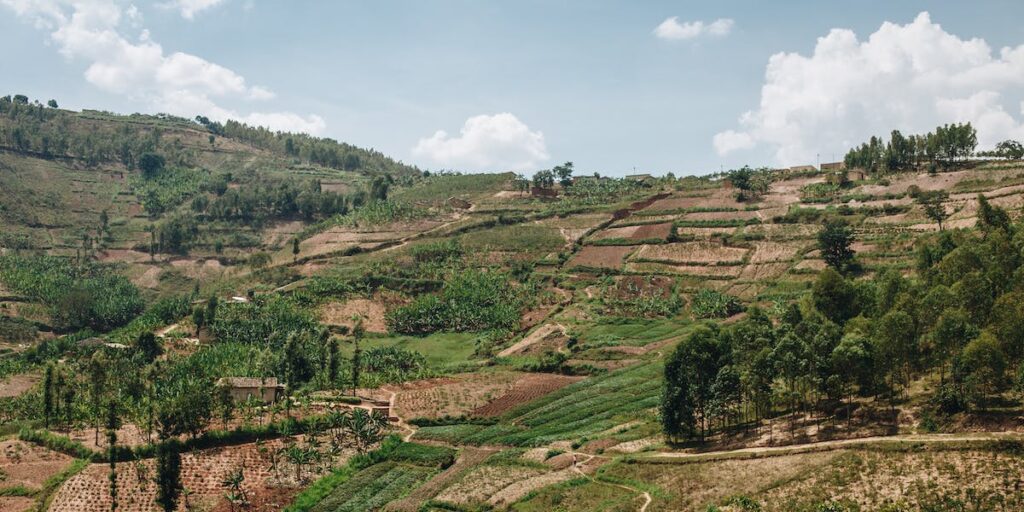Rose is growing vegetables in her new garden – alongside a much more important crop.
There’s no fruit – or trees of any kind – in her garden. And she planted no flowers. But this second crop is flourishing along with all her cabbages.
Rose is cultivating hope – for today, tomorrow, and a bright and beautiful future. Those seeds of hope were planted when Rose received agricultural gifts from generous supporters of Food for the Hungry (FH).
A Widow’s Plight
Feeding and caring for six children would stretch the budgets of most families. But Rose lives in an extremely impoverished Rwandan village, where food is scarce due to tiny plots of land, high soil erosion and infertility. And things became much worse when her beloved husband became chronically ill and ultimately passed away.
Suddenly, feeding six hungry children became her burden to bear alone. No matter how hard she worked, the poor quality soil allowed little to grow. She couldn’t harvest enough to keep the children fed. There certainly was nothing left over to sell so she could pay for medical bills and other necessities.
Rose and her children were perpetually hungry. When they did have something to eat, what they scraped together only quelled the hunger pains for a while. The meal never contributed to a balanced diet. As a result, every member of the family suffered from malnutrition. This led to a greater need for health care that she couldn’t afford. And her children had to drop out of school, since she couldn’t afford the materials required for them to attend.
Rose and her family were trapped in the cycle of poverty, with no hope of anything changing.
But then a tiny seed of hope arrived in her community in the form of Food for the Hungry (FH).

Fields Full of Growing Veggies
Before Food for the Hungry came to her village, Rose had been trying to grow vegetables and other crops on her land using old-fashioned farming techniques. Unfortunately, these outdated methods were especially ineffective given the poor quality soil. This led to Rose’s inability to grow the quality or quantity of food that was needed to sustain her large family.
But things began to change when FH supplied her with improved seeds and a host of valuable training, including:
- Modern agricultural techniques
- Basics for growing maize, vegetables, bananas, and other high-nutrition crops
- The importance of crop rotation
- How to prepare manure and pesticides
- Soil conservation
- And the “push-pull” method of keeping crop-destroying pests away by drawing them toward other plants
It wasn’t long before Rose started reaping harvests bigger than she had dreamed possible. Now her family has plenty of nutrient-rich vegetables to eat, and a surplus to sell and earn an income.
These seeds have provided so much more than food. Rose’s children were able to return to school, and one of her sons recently completed his secondary education. A path is now open for him to achieve his dreams, and the obstacles of extreme poverty are being lifted for every member of the family.

Growing Seeds of Hope
Rose’s story isn’t finished yet. Her family and community still have more to accomplish before they graduate from poverty for good. But they’ve already come a long way.
Putting food on the table is no longer an impossible burden. Utilizing the techniques FH taught her, Rose has turned her once-difficult land into a fertile haven for tomatoes, cabbages, onions, and carrots. She’s even been able to buy livestock, including a cow and some rabbits, using proceeds from her harvests. Today, the family can afford health insurance, school uniforms, and other necessities.
The most extraordinary transformation of all is Rose’s demeanor. As hope grows in her home, she can finally see a path forward to a better life. She is confident and radiates a joy that comes from knowing that, together, she and her family can tackle any issue that may come their way.
And it all started when seeds for veggies and hope were planted side-by-side.
Continue Reading
Small Gifts Lead to Big Futures


